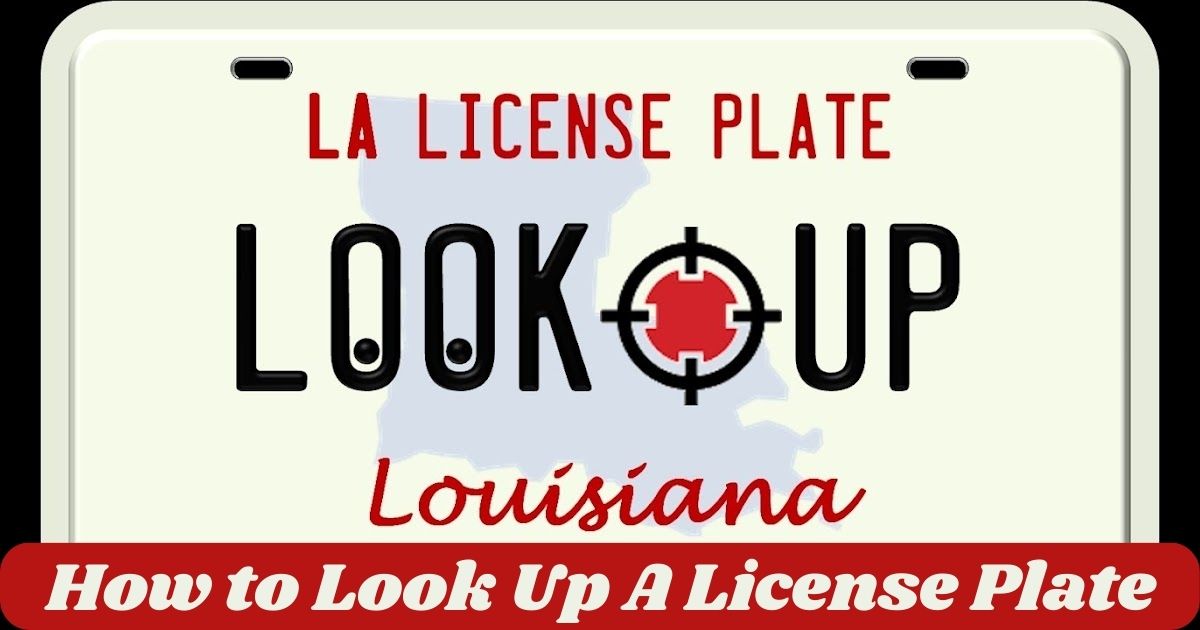Looking up a license plate can be necessary for various reasons, such as reporting a suspicious vehicle, verifying a car’s history, or handling legal matters. However, accessing this information must be done through legal and ethical channels to avoid privacy violations. Now we will explore in this article Look Up A License Plate.
Since license plate details are protected by law, only authorized sources like the DMV, law enforcement, or licensed investigators can provide accurate records. Using unauthorized methods or fake lookup sites can lead to legal trouble. Understanding the right ways to perform a license plate search ensures compliance with laws while obtaining the necessary information safely.
Is It Legal to Look Up a License Plate?
Laws regarding license plate lookups vary by region. In the U.S., the Driver’s Privacy Protection Act (DPPA) restricts personal data access. Only law enforcement, insurance agencies, and authorized professionals can access detailed records legally.
Unauthorized searches are risky. Using fake websites or unauthorized sources can lead to fines, legal actions, or identity theft. Always check your local laws before searching for license plate information.
Methods for Looking Up a License Plate
There are several legal methods to find license plate details. Government agencies, online lookup services, and professional investigators are common options. Each method has its own limitations and legal requirements.
- Official government portals, like the DMV, offer limited information for specific legal reasons.
- Private lookup services may provide basic details, but they are not always accurate.
- DMV or law enforcement inquiries are the safest and most reliable options for legal searches.
Using DMV Records for License Plate Lookup
The DMV (Department of Motor Vehicles) is the official source for vehicle records. To request license plate information, you need a valid reason, such as a legal matter or accident investigation. Some states allow online requests, while others require in-person applications.
However, not all details are accessible to the public. You can check registration status, vehicle make, and model, but owner information is usually restricted. Only law enforcement, attorneys, or insurance companies can access personal details.
Read more: How to Find License Plate Information: A Comprehensive Guide
Online License Plate Lookup Services: Are They Reliable?
Online license plate lookup services claim to provide instant vehicle details, but their reliability varies. Some legitimate services offer basic public records, while others display outdated or inaccurate data. Many free platforms provide limited information, while paid services may access more details but still face legal restrictions.
Scam websites are a major concern, as they often collect personal data without delivering accurate results. Before using any lookup service, verify its credibility by checking user reviews, security policies, and legal compliance. The safest approach is to rely on government databases or professional investigators for accurate and lawful vehicle information.
Hiring a Private Investigator for License Plate Lookup
Hiring a private investigator for a license plate lookup is a legal option when other methods fail. Licensed investigators have access to exclusive databases that provide accurate vehicle owner details while complying with privacy laws. They are often hired for fraud investigations, legal disputes, and accident cases.
However, this service can be expensive, with costs varying based on location, urgency, and case complexity. It’s essential to verify the investigator’s credentials to avoid legal risks. While this method is effective, it should only be used for legitimate reasons, ensuring compliance with local laws and ethical standards.
Alternative Ways to Find Vehicle Owner Information
If a license plate lookup doesn’t provide enough information, there are other legal alternatives.
- Checking police records: If the vehicle is linked to a crime or accident, authorities may provide details.
- Using a VIN (Vehicle Identification Number): VIN searches reveal a car’s history, previous owners, and accident reports.
- Reporting to authorities: If you suspect a stolen or suspicious vehicle, inform local law enforcement instead of conducting a private search.
Conclusion
Conducting a license plate lookup should always be done legally and ethically. Using official channels like the DMV, licensed investigators, or verified online services ensures accurate and lawful results. Unauthorized searches can lead to legal consequences, making it crucial to follow privacy regulations.
If looking up a license plate for a valid reason, such as an accident or fraud investigation, always choose trusted and legal methods. Avoid scam websites and illegal shortcuts that may compromise personal data. Respecting privacy laws while obtaining necessary information is the best way to ensure a responsible and risk-free license plate search.
FAQs
Is it legal to look up a license plate?
Yes, but only through authorized methods like the DMV or law enforcement.
Can I find the owner of a vehicle by the license plate?
No, owner details are protected by privacy laws and not publicly available.
Are online license plate lookup services reliable?
Some provide basic vehicle details, but not personal owner information.
How much does a private investigator charge for a license plate lookup?
Costs vary but typically range from $100 to $500, depending on the case.
Can I check a license plate for free?
Some free sites offer limited data, but full reports often require payment.









